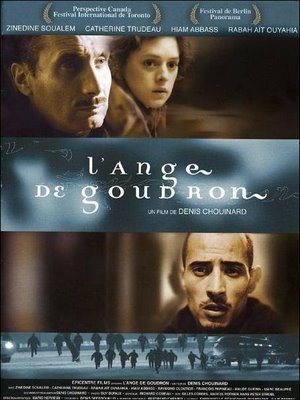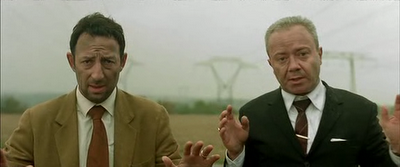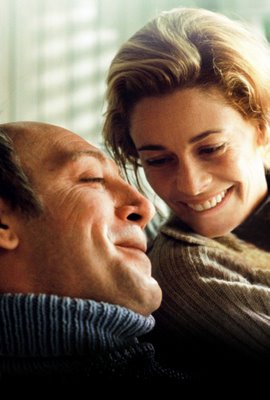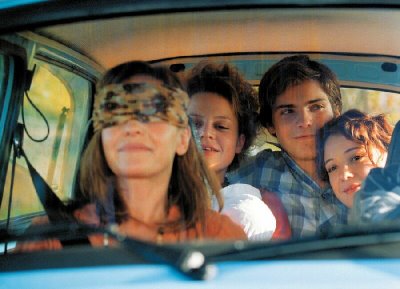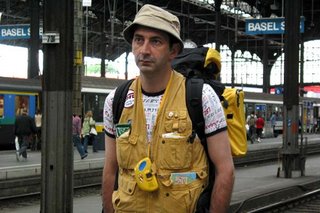
I first heard of australian film director Rolf de Heer during the recently held Chennai International Film Festival and was curious as to how his movies are. This is one of six of his movies that were being screened during the festival. His themes as far as I can say are the widest. 'Dance me to my Song' was centered around a hopelessly cippled woman, 'The trapper' was around an enslaved aboriginal tribesman during the year 1922, et cetera.
'Dance me to my Song' came as a surprise to me, basically because of the levels of courage and simplicity it portrays and its sense of raw talent. You'll see why.
Julia, portrayed by Heather Rose looks like a twisted flower squeezed inside a book. For all that she can see, hear and feel, she is looked down as nothing but a mass of flesh that serves no purpose. The only way she can communicate is by using her vioce machine (whose mechanical voice which makes it sound all the more eerie!) and sometimes her eyes and some throaty noises too. Madelaine has been assigned as her caregiver, thus relieving Julia from the monotony of the nursing homes. Caregivers are rare to come by, as we learn later in this film, and Madelaine is paid well by the nursing homes for her services.
But right from the beginning of this story, the fact is established that Madelaine is a higly selfish person who gets easily irritated with Julia. There are reasons for her rudeness though: She has a very unsuccessful love life. She tries desperately to find a man and fall in love with him unconditionally. But all the romantic adventures turn out to be one-night-stands for her. She feels humiliated and cheated as often as she in turn becomes the devil to Julia. But the most heartening thing is Julia sees, hears and understands the turmoil inside her caretaker. She wants to help and tries her best, but with Madelaine becoming increasingly rude and nasty, she hates her all the same. Rix a previous caregiver for Julia who is every bit as good as Madeline is devilish towards her, meets Julia often much to Madeline's annoyance .
At this juncture, Julia meets Eddie in a very comical encounter where she blocks his path and speaks with her wheelchair, eyes and tongue asking him to help her with her toilet! Eddie in turn finds this company much to his liking, and thus begins a firm bonding between them. Julia's physical yearning for sex and love; and the way she desperately seeks for it speaks volumes about the world that's tied up inside her. Eddie understands this too.
Madeline sees this and immediately falls for the handsome Eddie. The thought of Julia having Eddie's attention all the time makes her go raving mad. It all ends up with Madeline being caught red handed by Rix and visiting officials from the nursing home while she was literally beating Julia and threatening to kill her after she found her and Eddie in bed together.
The scenes where Heather Rose is rough-handed and beaten up will make any sane person wince even if he's a terminator himself! Heather Rose is a real life example of extreme cerebral palsy, though this never deterred her from acting or scripting this movie. We see her completely undressed. Julia's nakedness conveys her vulnerability without being the least bit prurient or exploitive.
Rolf De Heer's movies are like this as I found the similarity while watching another of his masterpieces - The Trapper: One will never know how to react to any scene in the movie. Its both saddening/digusting to some while at the same time wanting to make some other frame of mind laugh ou loud. I thrice found myself laughing alone in the audience while watching The Trapper. All of his movies are a must-see.






